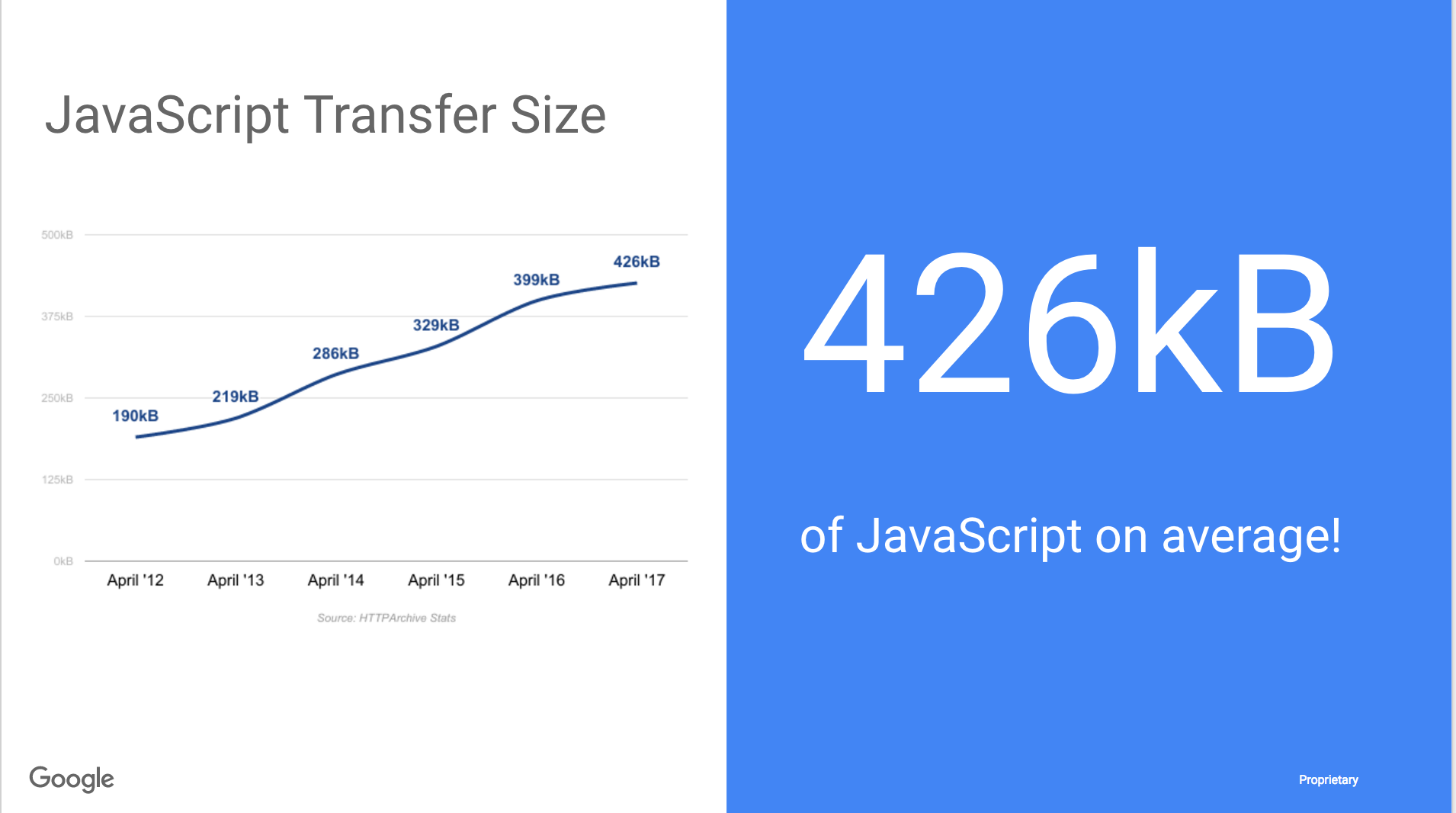Vector (original) (raw)
Feedback in V8
Feedback in V8
Michael Stanton
- Google V8: Compiler Team/Manager
- V8: ICs and Feedback Vectors
- Cats, climbing and old typewriters :p




Feedback
The transmission of evaluative or corrective information about an action, event, or process to the original or controlling source; also : the information so transmitted
What people think we do

What people think we do
What we actually do


How does v8 achieve Performance?
- Compilation pipeline with learning
- HiddenClass-based object layout
- Inline Caches to maintain and observe layout
Compilation pipeline with learning
Source
Code
Ignition
Byte
Code
Run for a while
Gather feedback
| IC Slot | Type | Value |
|---|---|---|
| 1 | LOAD | MONO |
| 2 | CALL | UNINIT |
| ... | ... | ... |
Compilation pipeline with learning
Source
Code
Ignition
Turbofan
Byte
Code
Optimized
Code
| Slot | Type | Value |
|---|---|---|
| 1 | LOAD | MONO |
| 2 | CALL | UNINIT |
| ... | ... | ... |
Compilation pipeline with learning
Source
Code
Ignition
Turbofan
Byte
Code
Optimized
Code

Deoptimization
| Slot | Type | Value |
|---|---|---|
| 1 | LOAD | MONO |
| 2 | CALL | UNINIT |
| ... | ... | ... |
How does v8 achieve Performance?
Compilation pipeline with learning
Hidden-Class-based object layout
Inline Caches to maintain and observe layout
Objects have a "hidden class" (called a Map in V8)
The Map is the first pointer in every object
The Map describes the layout in memory
Adding/removing properties changes the Map
Hidden-Class-based Object layout
let o = { x: 1 };
o.y = 2;Evolution of o.map
Hidden-Class-based Object layout
let o = { x: 1 };
o.y = 2;Evolution of o.map
Hidden-Class-based Object layout
let o = { x: 1 };
o.y = 2;Evolution of o.map
Umm...Okay...
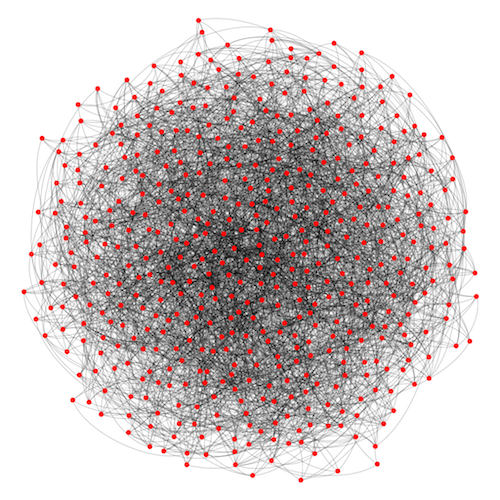
How does v8 achieve Performance?
- Compilation pipeline with learning
- Hidden-Class-based object layout
- Inline Caches to maintain and observe layout
Inline Caches to maintain and observe layout
- An Inline Cache (IC) is a listening site placed in your code.
- We have them at LOAD, STORE and CALL locations.
- It caches the Map of objects that pass by in the Feedback Vector for the function.
| IC Slot | IC Type | Value |
|---|---|---|
| 1 | LOAD | MONO |
| 2 | CALL | UNINIT |
| ... | ... | ... |
Every function has a Feedback Vector. It's just an array that holds state for each IC.
function processLogFile(fileName) {
this.collectEntries = true;
this.lastLogFileName_ = fileName;
var line;
while (line = readline()) {
this.processLogLine(line);
}
print();
print("Load: " + this.LoadIC);
print("Store: " + this.StoreIC);
...
}| IC Slot | IC Type | State |
|---|---|---|
| ... | ... | ... |
| 10 | LOAD | MONO(M) |
| 11 | LOAD | UNINITIALIZED |
Inline Caches to maintain and observe layout
An Inline Cache is also a state machine.
Inline Caches to maintain and observe layout
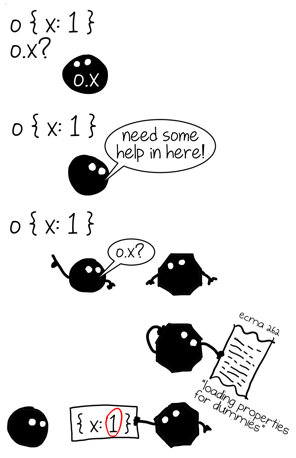
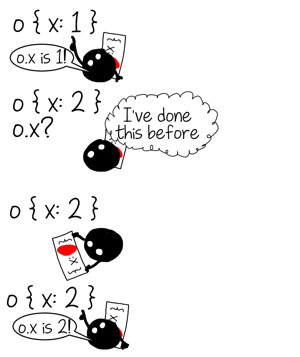
mrale.ph/blog
function load(a) { return a.key; }// pseudo-code for the LOAD IC:
if (vector[slot].state == MONO) {
if (a.map == vector[slot].map) {
return valueAtOffset(a, vector[slot].offset);
} else {
// Call into the Runtime for instructions.
// Update IC state.
}
} else {
..
}| Slot | Type | State | Map | Offset |
|---|---|---|---|---|
| 0 | LOAD_IC | MONO | m | 0x8 |
Some facts
- We can say an IC is monomorphic when it only saw objects of one Map.
- It never makes sense to talk about an object as monomorphic.
- The term only applies to load of a particular property at a particular site.
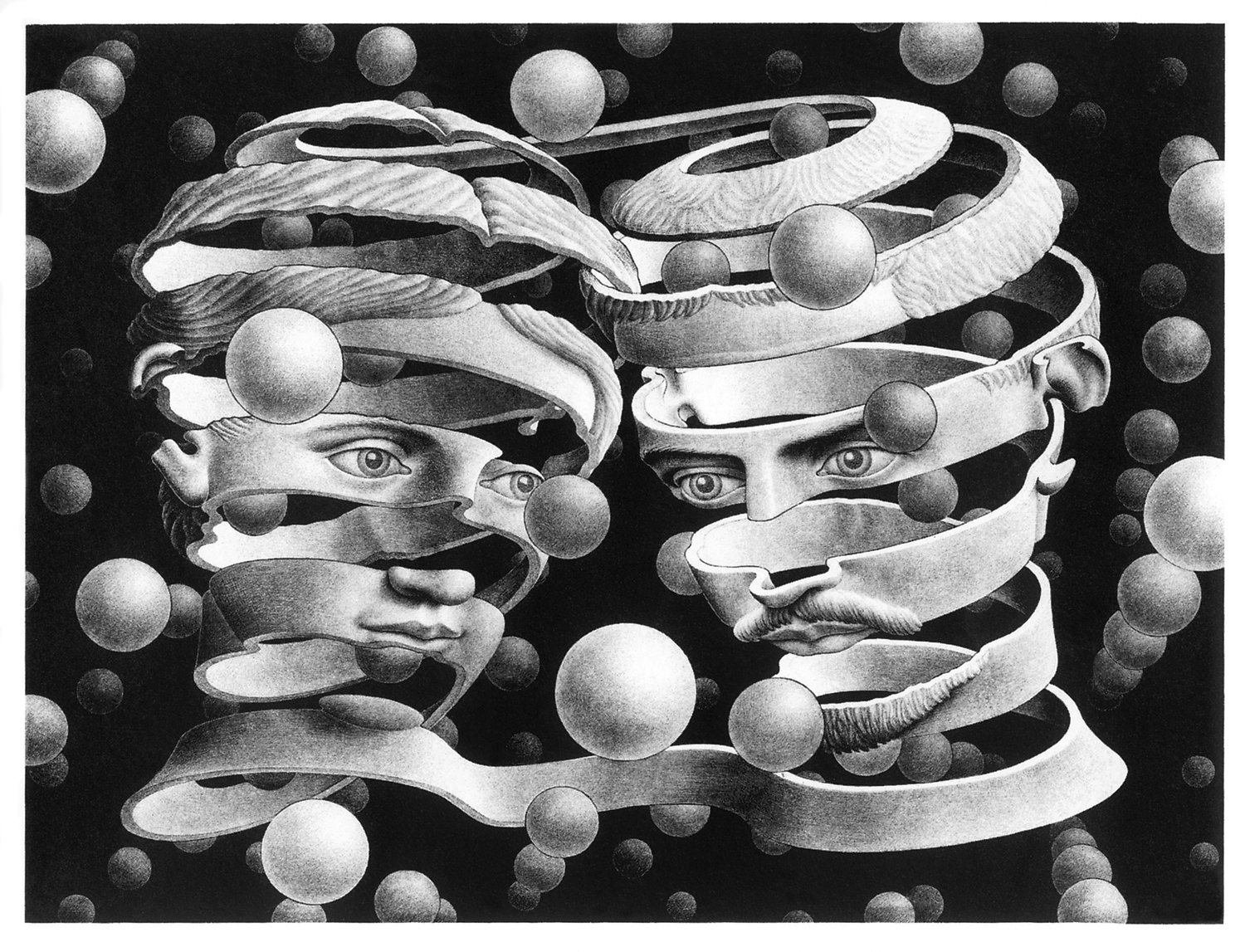
How v8 achieves Performance
- Compilation pipeline with learning
- Hidden-Class-based object layout
- ICs to maintain and observe layout
Feedback Workflow
Let's look at a simple property load.
function load(a) {
return a.key;
}
var o = { key: "usb" };
var o1 = { key: "port" };
for (var i = 0; i < 100000; i++) {
load(o);
load(o1);
}
Parsing
Here is the AST from parsing:
function load(a) {
return a.key;
}
var o = { key: "usb" };
var o1 = { key: "port" };
for (var i = 0; i < 100000; i++) {
load(o);
load(o1);
}
// Run with --print-ast
FUNC
. NAME "load"
. PARAMS
. . VAR "a"
. RETURN
. . PROPERTY Slot(0) at 29
. . . VAR PROXY parameter[0] "a"
. . . NAME key
Parsing
Here is the AST from parsing:
function load(a) {
return a.key;
}
var o = { key: "usb" };
var o1 = { key: "port" };
for (var i = 0; i < 100000; i++) {
load(o);
load(o1);
}
// Run with --print-ast
FUNC
. NAME "load"
. PARAMS
. . VAR "a"
. RETURN
. . PROPERTY Slot(0) at 29
. . . VAR PROXY parameter[0] "a"
. . . NAME key
Here is the feedback vector specification:
Compiling bytecode
function load(a) {
return a.key;
}
var o = { key: "usb" };
var o1 = { key: "port" };
for (var i = 0; i < 100000; i++) {
load(o);
load(o1);
}
Here is the feedback vector specification:
// Run with --print-bytecode
"load" -- Parameter count 2
StackCheck
Nop
LdaNamedProperty a0, [0], [3] // "key"
Return
Interpreting
function load(a) {
return a.key;
}
var o = { key: "usb" };
var o1 = { key: "port" };
for (var i = 0; i < 100000; i++) {
load(o);
load(o1);
}
Here is the feedback vector:
| Slot | Type | Value |
|---|---|---|
| 0 | LOAD_IC | UNINIT |
Interpreting
function load(a) {
return a.key;
}
var o = { key: "usb" };
var o1 = { key: "port" };
for (var i = 0; i < 100000; i++) {
load(o);
load(o1);
}
We execute the LoadIC for "a.key"...
| Slot | Type | Value |
|---|---|---|
| 0 | LOAD_IC | UNINIT |
Interpreting
function load(a) {
return a.key;
}
var o = { key: "usb" };
var o1 = { key: "port" };
for (var i = 0; i < 100000; i++) {
load(o);
load(o1);
}
Return the answer & remember the Map.
| Slot | Type | Value |
|---|---|---|
| 0 | LOAD_IC | MONO(o.map) |
Interpreting
function load(a) {
return a.key;
}
var o = { key: "usb" };
var o1 = { key: "port" };
for (var i = 0; i < 100000; i++) {
load(o);
load(o1);
}
Now with a different object...
| Slot | Type | Value |
|---|---|---|
| 0 | LOAD_IC | MONO(o.map) |
Interpreting
function load(a) {
return a.key;
}
var o = { key: "usb" };
var o1 = { key: "port" };
for (var i = 0; i < 100000; i++) {
load(o);
load(o1);
}
| Slot | Type | Value |
|---|---|---|
| 0 | LOAD_IC | MONO(o.map) |
Interpreting
function load(a) {
return a.key;
}
var o = { key: "usb" };
var o1 = { key: "port" };
for (var i = 0; i < 100000; i++) {
load(o);
load(o1);
}
| Slot | Type | Value |
|---|---|---|
| 0 | LOAD_IC | MONO(o.map) |
Profiling
function load(a) {
return a.key;
}
var o = { key: "usb" };
var o1 = { key: "port" };
for (var i = 0; i < 100000; i++) {
load(o);
load(o1);
}
The Runtime Profiler asks:
- Is the function "hot?"
- Is there enough feedback?
// --trace-opt output
[marking <JSFunction load> for
optimized recompilation,
reason: small function,
ICs with typeinfo: 1/1 (100%),
generic ICs: 0/1 (0%)]| Slot | Type | Value |
|---|---|---|
| 0 | LOAD_IC | MONO(o.map) |
(Run with --nouse-osr to ensure we optimize load(), and not the whole script)
// load(a) - Turbofanned
push ebp // Build frame
mov ebp,esp //
push esi //
push edi //
mov eax,[ebp+0x8] // eax = a
test al,0x1 // is a an object?
jz DEOPT_0 // If not, deoptimize
mov ecx,[eax-0x1] // ecx = a.map
mov edx,0x37e0b4ad // edx = o.map
cmp ecx, edx
jnz DEOPT_1 // if not same, deopt.
mov eax,[eax+0xb] // return a.key!
mov esp,ebp // Tear down frame
pop ebp //
ret 0x8 // return for realz
...
DEOPT_0: call 0x52d06000 // Goodbye...
DEOPT_1: call 0x52d0600a // Also goodbye
// load(a) - Turbofanned
push ebp // Build frame
mov ebp,esp //
push esi //
push edi //
mov eax,[ebp+0x8] // eax = a
test al,0x1 // is a an object?
jz DEOPT_0 // If not, deoptimize
mov ecx,[eax-0x1] // ecx = a.map
mov edx,0x37e0b4ad // edx = o.map
cmp ecx, edx
jnz DEOPT_1 // if not same, deopt.
mov eax,[eax+0xb] // return a.key!
mov esp,ebp // Tear down frame
pop ebp //
ret 0x8 // return for realz
...
DEOPT_0: call 0x52d06000 // Goodbye...
DEOPT_1: call 0x52d0600a // Also goodbye
// load(a) - Turbofanned
push ebp // Build frame
mov ebp,esp //
push esi //
push edi //
mov eax,[ebp+0x8] // eax = a
test al,0x1 // is a an object?
jz DEOPT_0 // If not, deoptimize
mov ecx,[eax-0x1] // ecx = a.map
mov edx,0x37e0b4ad // edx = o.map
cmp ecx, edx
jnz DEOPT_1 // if not same, deopt.
mov eax,[eax+0xb] // return a.key!
mov esp,ebp // Tear down frame
pop ebp //
ret 0x8 // return for realz
...
DEOPT_0: call 0x52d06000 // Goodbye...
DEOPT_1: call 0x52d0600a // Also goodbye
// load(a) - Turbofanned
push ebp // Build frame
mov ebp,esp //
push esi //
push edi //
mov eax,[ebp+0x8] // eax = a
test al,0x1 // is a an object?
jz DEOPT_0 // If not, deoptimize
mov ecx,[eax-0x1] // ecx = a.map
mov edx,0x37e0b4ad // edx = o.map
cmp ecx, edx
jnz DEOPT_1 // if not same, deopt.
mov eax,[eax+0xb] // return a.key!
mov esp,ebp // Tear down frame
pop ebp //
ret 0x8 // return for realz
...
DEOPT_0: call 0x52d06000 // Goodbye...
DEOPT_1: call 0x52d0600a // Also goodbye
// load(a) - Turbofanned
push ebp // Build frame
mov ebp,esp //
push esi //
push edi //
mov eax,[ebp+0x8] // eax = a
test al,0x1 // is a an object?
jz DEOPT_0 // If not, deoptimize
mov ecx,[eax-0x1] // ecx = a.map
mov edx,0x37e0b4ad // edx = o.map
cmp ecx, edx
jnz DEOPT_1 // if not same, deopt.
mov eax,[eax+0xb] // return a.key!
mov esp,ebp // Tear down frame
pop ebp //
ret 0x8 // return for realz
...
DEOPT_0: call 0x52d06000 // Goodbye...
DEOPT_1: call 0x52d0600a // Also goodbye
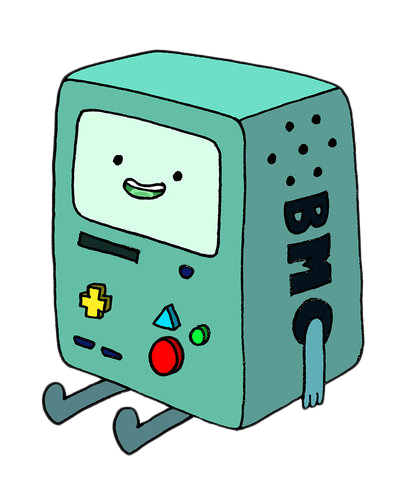
Monomorphism: The Golden Idol
- It's tempting to see every problem as "insufficient monomorphism."
- This becomes counter-productive
- Advice to duplicate code :(
- Language expressiveness suffers

Monomorphism: The Golden Idol
- It's a good thing, but there are many good things.
- Spend more time improving baseline performance
- A sports car isn't appropriate for everything

Things to consider when optimizing
- How to use the feedback?
- Monomorphic is a no-brainer: use it
The more references there are to "a" downwind of the feedback, the greater the benefit of knowing the object's class.
Downwind includes inlined functions.
Things to consider when optimizing
- How to use the feedback?
- Monomorphic is a no-brainer: use it
- Polymorphic: use it...but what if some of the maps are stale and never used recently?
// TurboFan emits something like this:
if (a.map == 0x43501231) { // Maps embedded in code.
return loadAtOffset(a, 0xc); // No Feedback Vector.
} else if (a.map == 0x99503211) {
return loadAtOffset(a, 0x10);
} else {
DEOPTIMIZE(); // Oh noes!
}
Things to consider when optimizing
- How to use the feedback?
- Monomorphic is a no-brainer: use it
- Polymorphic: probably use it
- What about uninitialized IC sites?
Things to consider when optimizing
- How to use the feedback?
- Monomorphic is a no-brainer: use it
- Polymorphic: probably use it
- What about uninitialized IC sites? deoptimize
- Be careful about "hoisting" map checks out of loops!
Things to consider when optimizing
- How to use the feedback?
- Monomorphic is a no-brainer: use it
- Polymorphic: probably use it
- What about uninitialized IC sites? deoptimize
- Be careful about "hoisting" map checks out of loops!
You lose touch with the Feedback Vector, and have nowhere to put the new map after deoptimization.
Eventually V8 stops reoptimizing.

Things to consider when optimizing
- How to use the feedback?
- Monomorphic is a no-brainer: use it
- Polymorphic: probably use it
- What about uninitialized IC sites? deoptimize
- Be careful about "hoisting" map checks out of loops!
- How much to inline?
- Increases compilation time
- Which calls to inline, and to what depth?
Optimized execution
| Slot | Type | Value |
|---|---|---|
| 0 | LOAD_IC | MONO(o.map) |
// load(a) - Turbofanned
...
mov ecx,[eax-0x1] // ecx = a.map
mov edx,0x37e0b4ad // edx = o.map
cmp ecx, edx
jnz DEOPT_1 // if not same, deopt
mov eax,[eax+0xb] // return a.key
...Feedback Vector not being used
function load(a) {
return a.key;
}
var o = { key: "usb" };
var o1 = { key: "port" };
for (var i = 0; i < 100000; i++) {
load(o);
load(o1);
}
load({ key: "usb", name: "francis" });Deopt path is taken
function load(a) {
return a.key;
}
var o = { key: "usb" };
var o1 = { key: "port" };
for (var i = 0; i < 100000; i++) {
load(o);
load(o1);
}
load({ key: "usb", name: "francis" });| Slot | Type | Value |
|---|---|---|
| 0 | LOAD_IC | MONO(o.map) |
// load(a) - Turbofanned
...
mov ecx,[eax-0x1] // ecx = a.map
mov edx,0x37e0b4ad // edx = o.map
cmp ecx, edx
jnz DEOPT_1 // if not same, deopt
mov eax,[eax+0xb] // return a.key
...Interpreting
function load(a) {
return a.key;
}
var o = { key: "usb" };
var o1 = { key: "port" };
for (var i = 0; i < 100000; i++) {
load(o);
load(o1);
}
load({ key: "usb", name: "francis" });| Slot | Type | Value |
|---|---|---|
| 0 | LOAD_IC | POLY(o.map, new_map) |
Conclusion
We are watching...
Conclusion
We are watching...
with love!

| IC Slot | IC Type | Value |
|---|---|---|
| 1 | LOAD | MONO |
| 2 | CALL | UNINIT |
| ... | ... | ... |
Questions?

Shameless plug
